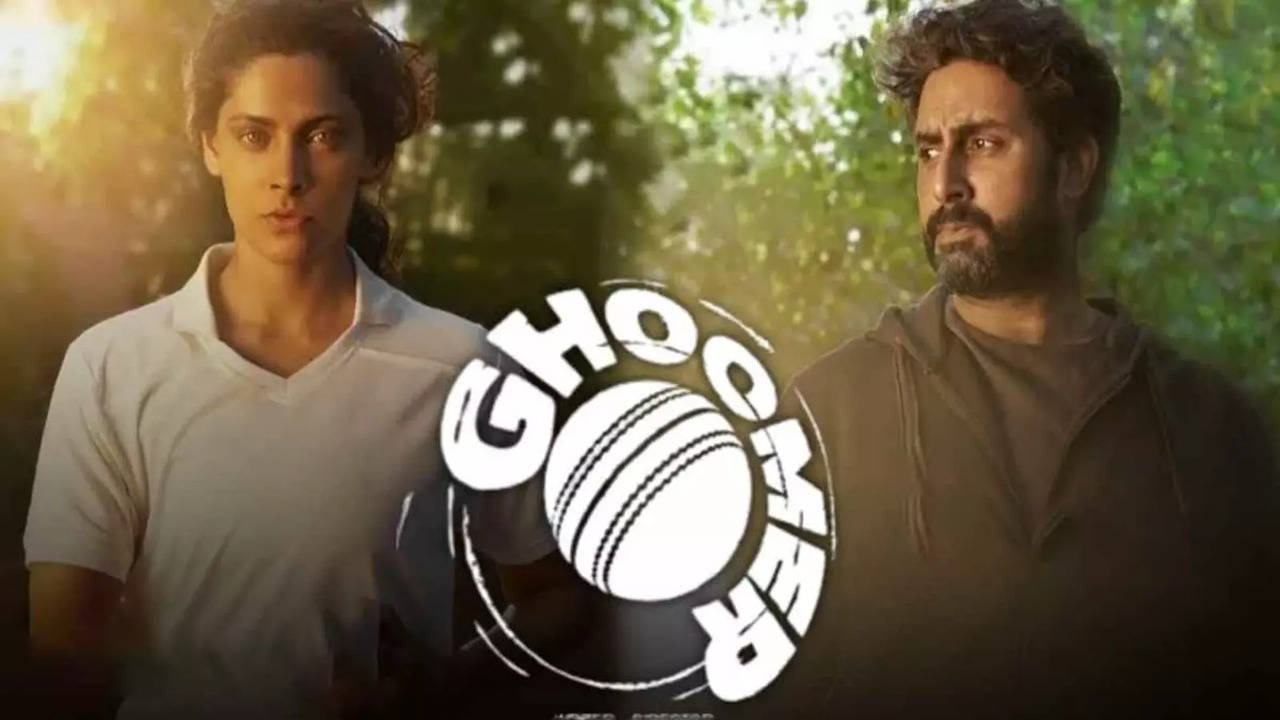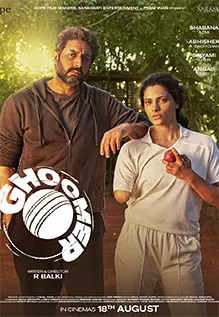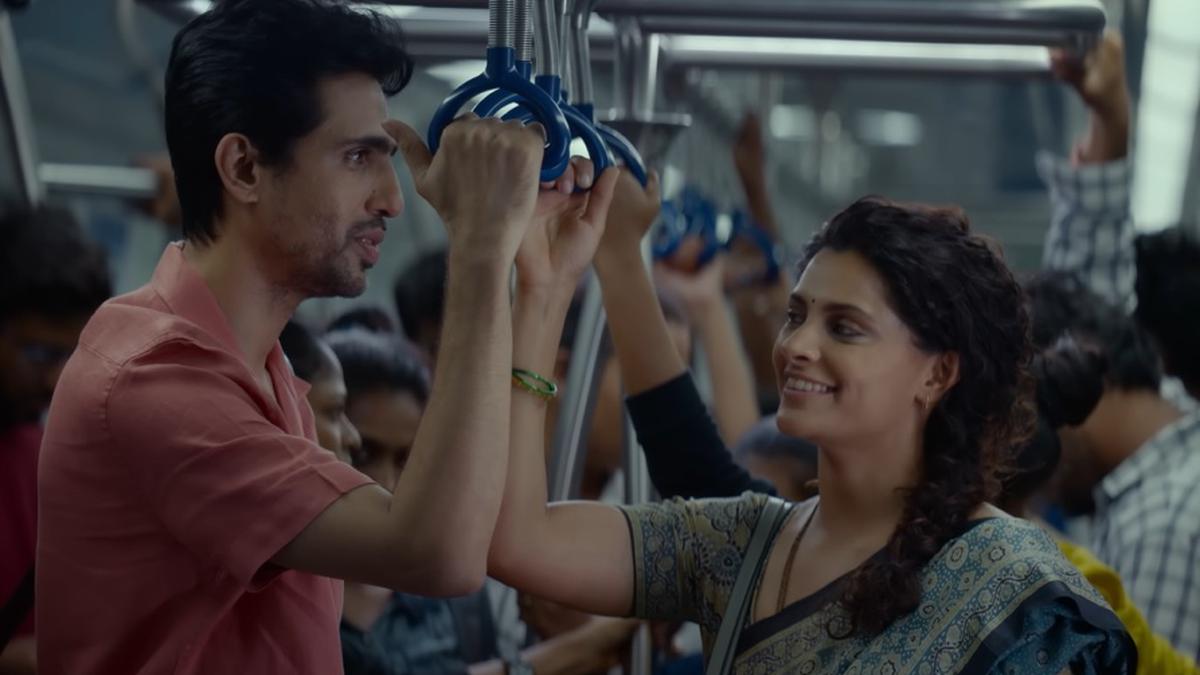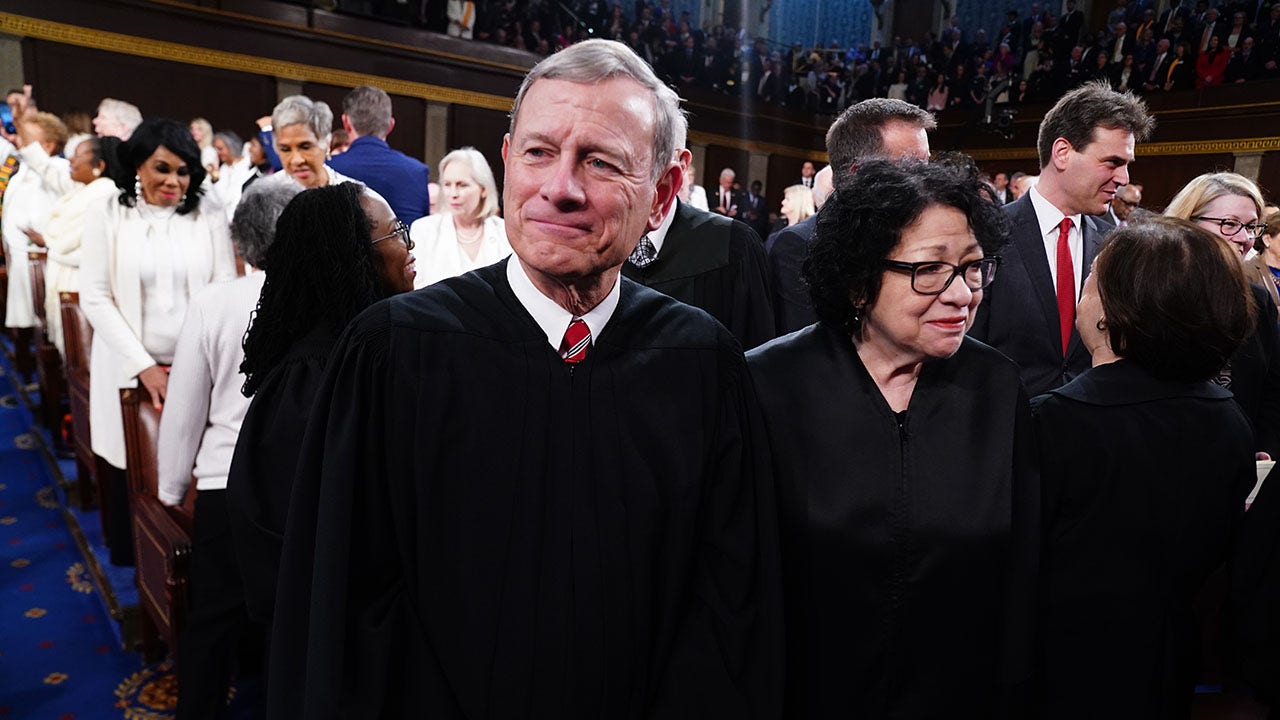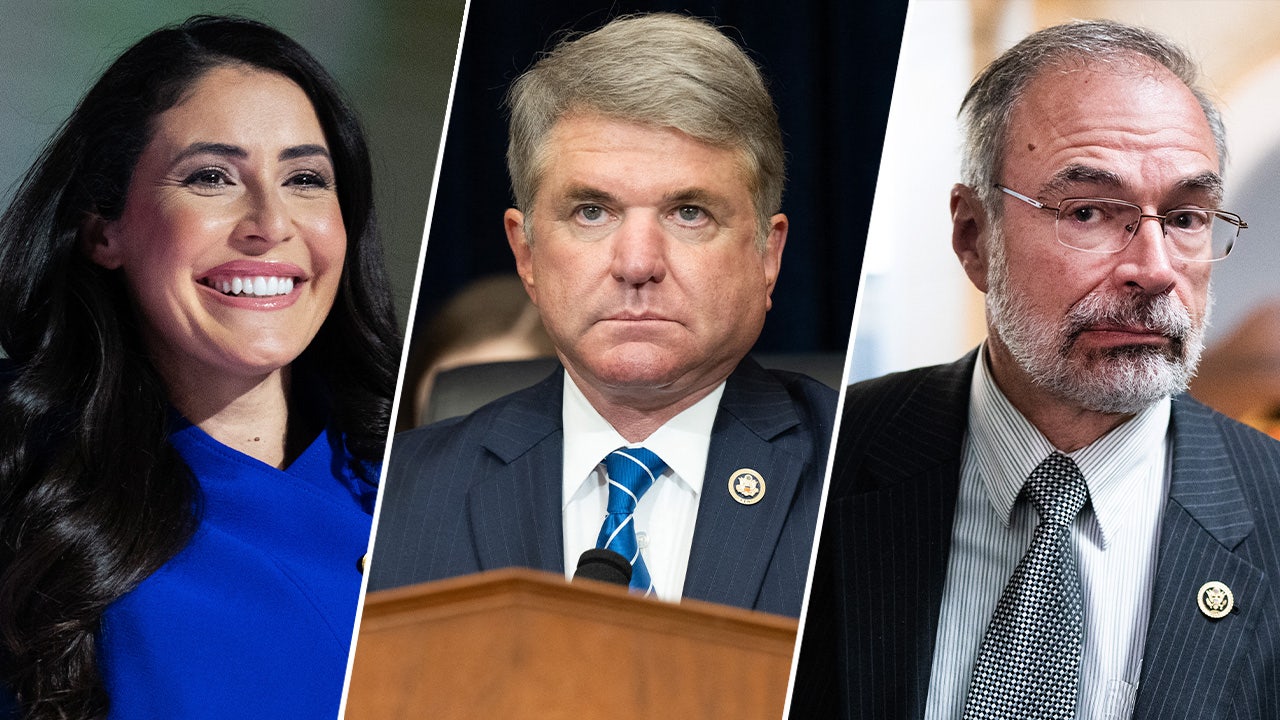Movie Reviews
8 AM Metro Movie Review: Saiyami Kher, Gulshan Deviah’s film is a poetic ode to Bollywood

By Grace Cyril: Two married strangers meet in a metro in Hyderabad. It could either be love or murder in a cliche Bollywood scenario. However, in Raj Rachakonda’s film 8 A.M. Metro, they develop an unlikely friendship. Throughout the movie, the two strangers share jokes, confess their deepest fears and dish out wonderful poetry. What makes it relatable is the fact that both Saiyami Kher and Gulshan Deviah’s characters are middle-class people who have achieved nothing extraordinary in life and are, in fact, struggling to survive. These ‘hurting’ friends help each other heal. 8 A.M. Metro opens discussions around mental health and like most films tackling this subject, it is imperfect. However, its heart seems to be in the right place.
“Sab kuch hone ke baad bhi hum bahar kyu khushiya dhundte hai (Why do we look for happiness outside when we have everything?),” says Saiyami’s Iravati, a timid Maharashtrian middle-class homemaker. Her husband gives her no attention and her time is consumed by her kids. If anything, she feels choked with her household scenario and vents it out by writing poetry. Flashback shows how the train causes Ira severe panic attacks. So, when she has to travel by one to meet her pregnant sister, she is traumatised. During one of her episodes of panic attacks, she meets a banker named Pritam, played by Gulshan Deviah. He helps her reach her destination every day at 8 am. Soon, an unlikely friendship blossoms between them which is neither love nor attraction. The two seek solace in books, poetry, and filter coffee.
8 A.M. Metro is bipolar! It swings between passionate highs and painful lows that are intentional. When most of us are struggling with mental health, we often say ‘It’s all under control’ and try to move on. The thing is, it isn’t, not by a long shot. And it’s perfectly alright to ask for help. Raj Rachakonda has perfectly tried to strike up a conversation on this in 8 A.M. Metro. The film will coo your ears with Gulzar’s poetry.
In this suffocated humdrum of life, 8 A.M. Metro is a film that is filled with literature, and lessons on life. It takes a subtle dig at how society looks at mental health. When Iravati gets a panic attack, she is asked to ‘be strong’ and ‘get over it’. Watch out for the scene where Ira tells Pritam about how her friends and family respond when she gets anxious. 8 A.M. Metro also deals with social anxiety that many have, but won’t seek help for the same. Like Pritam helped Ira with her panic attacks, she helps him deal with his social awkwardness. The way they are empathetic towards each other will win your hearts. These two are as normal as any of us.
Here’s the trailer:
8 A.M. Metro also deals with the subject of suicide sensitively and beautifully. There’s a scene where Iravati and Pritam hang out near a lake where a board warns against suicide. Pritam jokes, ‘Agar ye board nahi hota to mai aj yaha kood hi jata (If this board wasn’t here, I would’ve jumped in the pool today).’ While this will make you laugh, Iravati’s answer is quite heart-touching. She says, “Lekin agar isse ek ki bhi jaan bach jaye, vo kaafi hai (But if it saves even one life, it’s enough).” This opens a discussion on suicide.
Saiyami as Iravati is very relatable. She writes poetry in an old diary over cups of filtered coffee. Her coy nature, the way she recites Gulzar’s poetry, and how she weighs in each word seems soothing to watch. Gulshan, meanwhile, brings a charm to his character that no one else could have. He is socially awkward and seeks solace in books. His role has a major twist in the end that will make your heart cry for him. Both actors bring a humane side to their roles that bring the focus back on the content.
It also makes you wonder if two people of the opposite sex, with kids and spouses, can be friends. Can’t they be acquaintances who lend an ear to each other? Why should society judge them?
Any number of awards wouldn’t be enough for director and writer Raj Rachakonda and co-writer Shruti Bhatnagar. Each of the dialogues has been beautifully written in a no-nonsense way. Even in tense moments, they have added a touch of humour to balance it. There’s a guy who does Zoom meetings in the metro and a youth who keeps falling asleep on another man’s shoulder. The film is littered with relatable scenes one would usually find in a metro. The climax is a pure treat, you won’t be even expecting it.
The film had a few drawbacks too. It dips in the second half and drags a bit towards the end. Considering the screenplay, perhaps it’s made for an OTT release. While the poetic quality of the film is its USP, too much of anything gets boring, at times irritating. The pacing of 8 A.M. Metro is a problem as well.
8 A.M isn’t just a movie, it is a group therapy session. It extends an arm to you for a warm hug and leaves your heart light as you step out of the theatre. There is a tale of Franz Kafka’s missing doll – it acts as the perfect ending. 8 A.M Metro is a film that could heal a part of you.
3.5 stars out of 5 for 8 A.M. Metro.

Movie Reviews
Screen Grabs: Zut alors! The Count of Monte Cristo rides again – 48 hills
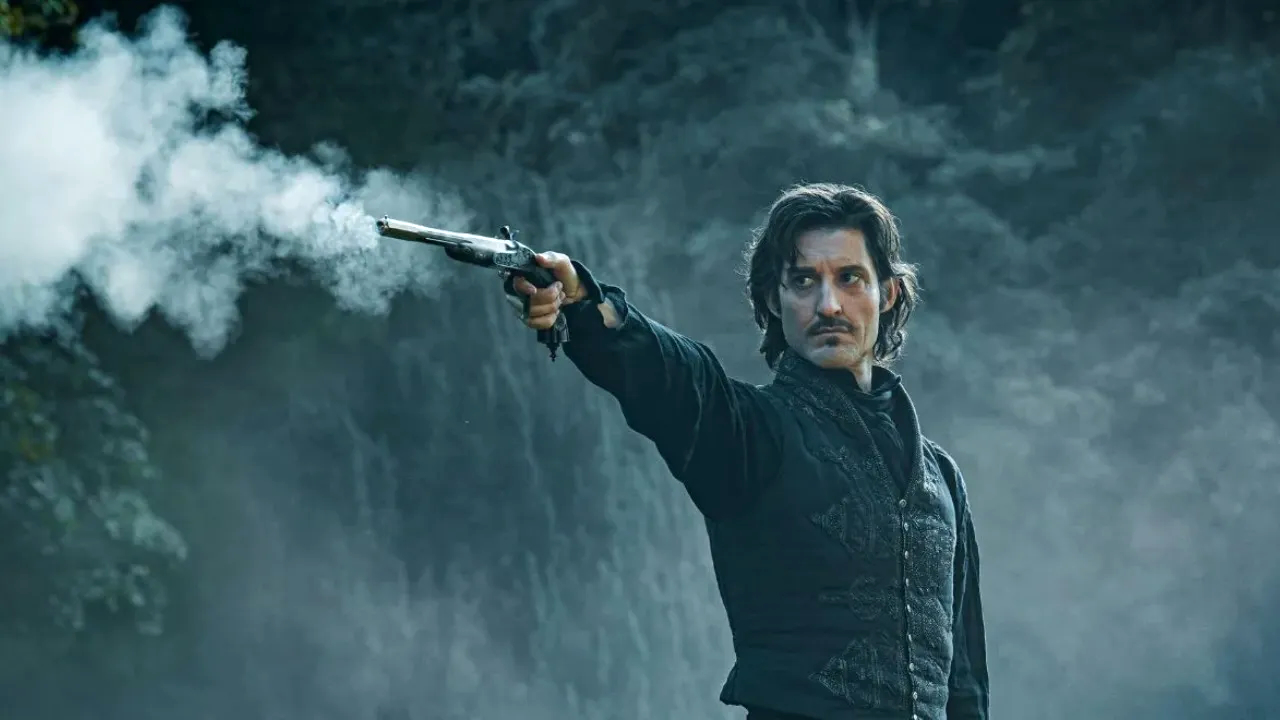
Historical fiction is what’s happening at the movies this week, with a side serving of current events in two more features. The big, plush beach-read epic among them is The Count of Monte Cristo, Alexandre Dumas’ adventure classic being given an extravagant new three-hour visualization by the French writing-directing team of Matthieu Delaporte and Alexandre de La Patelliere. Pierre Niney of Frantz and Yves Saint Laurent plays Edmond Dantes, a sailor of humble origin made good, until a jealous rival has him framed as an agent of the exiled Napoleon. Years later, he escapes an island prison and poses as a wealthy foreigner to insinuate himself into the worlds of the three men (Bastien Bouillon, Laurent Lafitte, Patrick Mille) who’d orchestrated his fate—and have profited from more crimes since.
Even with its narrative somewhat altered and compacted from Dumas’ sprawling original (which was first published as a serial between 1844-46), this remains a flamboyantly old-fashioned tale of credulity-stretching intrigue and coincidence. We seldom see its like on the big screen anymore—or maybe we do, but these days it’s more likely to take the overtly fantastical form of a Batman movie or the like. This lavish production does not shy from going over-the-top in its ostentatious settings, flashy drone shots or bombastic orchestral score. Still, it all pretty much works, particularly once the elaborate revenge scheme kicks in around mid-point.
It’s period popcorn entertainment on a grand scale, no less enjoyable for being more than a bit theatrically shameless. The Count of Monte Cristo begins opening around the Bay Area on January 3; likely SF venues (not yet confirmed at presstime) were the AMC Kabuki and Metreon.
As strikingly bleak in its handsome B&W austerity as The Count is eye-candy colorful, The Girl With the Needle from Danish director Magnus von Horn (whose prior Sweat we reviewed here) weaves fictional elements around a shocking criminal case from a century ago. In 1919 Copenhagen, Karoline (Vic Carmen Sonne) is a clothing-factory seamstress whose husband hasn’t come back from WWI service, and may well be dead. She is seduced by her wealthy boss (Jorgen Fjelstrup), but any dreams of a wealthy, stable future with him get squelched by a first/last meeting with his imperious mother.
Now pregnant and desperate, with legal abortion not an option, Karoline finds herself aided by a stranger met by chance. Middle-aged Dagmar (Trine Dyrholm) seems to be in the business of helping just such poor young women, and placing their unwanted children in “good homes.” But it is not until she’s become an integral part of Dagmar’s ongoing operation that Karoline realizes her benefactress is secretly a monster—a sort of matricidal equivalent to Sweeney Todd. It is that figure who’s based on a real-life one, her trial leading to major changes in child-protective laws; and the formidable Dyrholm is impressive as always in the role.
But primary focus here is on fictive Karoline, who is not very interesting or even terribly sympathetic. The facts on record are so much more powerful than what von Horn chooses to portray, his choices end up seeming rather inscrutable, despite the film’s compelling atmosphere and aesthetics. It’s an arresting exercise in many respects that nonetheless proves somewhat frustrating. Girl opens Fri/3 at SF’s Roxie, with other Bay Area venues to follow.
Taking place a few years earlier on the far opposite ends of Eurasia is Harbin from South Korean writer-director Woo Min-ho, of prior hit political thrillers Inside Men and The Man Standing Next. It’s set in 1909, four years after a multinational treaty forced Korea to basically become a colony of Japan following the latter’s winning the Russo-Japanese War. Abandoned by allies (including the US), nationalists formed resistance groups to combat the encroachment of further Japanese imperialism, among them the Korean Independence Army. Ahn (Hyun Bin) is fighting in their ranks when they score a combat victory over some surprised Nippon troops. But he insists on honoring international war-crimes rules by not executing some captured personnel, despite his own men’s objections. That turns out to be a bitterly regretted decision, because spared high-ranking officer Mori (Park Hoon) soon seizes an opportunity to massacre nearly all Ahn’s comrades.
To redeem himself, Ahn decides he’ll make it his mission to assassinate Japan’s Prime Minister as he travels across China to meet with Russian diplomats, orchestrating deals that will secure Korea’s subjugation. This involves a labyrinth of undercover intrigue, arms acquisition, betrayal, shootouts, and so forth, with a mole conveying most of these planned guerrilla actions to the relentless Mori before they can occur.
Dense with background details and explication that may be somewhat daunting to non-Korean audiences, Harbin nonetheless maintains interest with a somber, tense mood spiked by occasional outbursts of violence. It’s handsomely produced on impressive locations, from spectacular mountain and desert landscapes to myriad interiors whose dark look amplifies the surreptitious nature of the characters’ activities. A history lesson framed as heroic action-suspense tale, Harbin may for Western viewers recall starry big-budget WW2 espionage epics of the 1960s like Where Eagles Dare and Von Ryan’s Express—though it’s a bit less heavy on the swaggering machismo. It opens in Bay Area theaters Fri/3.
Another fact-inspired new drama has gotten a divisive response, with raves and awards from some quarters, while others have found it curiously alienating. I’m sorry to say I landed on the debit side of that divide—sorrier still because the source material seemed such a natural for the screen. Colson Whitehead’s Pulitzer-winning 2019 novel The Nickel Boys provided a succinctly powerful portrait of slavery long after the official end of slavery, via abuses visited on boys at a very long-running fictive Florida boys’ reform school (in real life the now-shuttered Dozier School). Its protagonist gets sent there unjustly as a juvenile in the early 1960s, and is lucky to survive the experience. Much later, he lives to see the institution investigated, uncovering decades of brutality including rape, beatings, and the unmarked graves of former wards who supposedly “ran away” or simply “disappeared.”
Nickel Boys (the “the” has been dropped) is a first narrative feature for RaMell Ross, who previously had turned his sojourn teaching photography in rural Alabama into a fine poetical documentary of life there. Hale County This Morning, This Evening was oblique but evocative, offering little in the way of concrete storytelling yet providing heady, lyrical insight into a place and culture.
But Whitehead’s book is full of vivid incident, character dynamics, and historical context; it’s not the sort of thing that lends itself to flavorful abstraction. Whatever led Ross to make the decisions he makes, they didn’t work for me: He has shot this intensely dramatic story entirely in the first-person, initially limited to the perspective of teenaged Elmwood (Ethan Herisse), then also that of Turner (Brandon Wilson), who becomes his only real friend at the dreaded “Nickel Academy.”
Their travails rendered murky by a POV in which we see the abuser, but not the abused (Ross and Joslyn Barnes’ screenplay tends to leave those acts to our imagination anyway), this is a movie whose high-minded experimentalism ends up only muffling the impact of its material. The effect is rather like reading a novel entirely written in the second person: It’s a gimmick that can be pulled off, yes, but why would you want to? The performers (also including Daveed Diggs, Hamish Linklater, and Jimmie Fails) are good, albeit handicapped by the alienating technique. Some, like Aunjanue Ellis-Taylor as Elwood’s grandmother, succumb to overstatement when repeatedly asked to play entire scenes directly to the camera, rather than a fellow actor.
The external threads Ross weaves in (often utilizing archival footage) involving the concurrent Civil Rights movement, “space race” etc. do ultimately pay off in making this long sit achieve a kind of complex, essayistic dimensionality. But those 15 minutes or so of Chris Marker-like montage succeed at the cost of The Nickel Boys, which will have to wait for a more straightforward future translation to realize the impact that fairly leapt off Whitehead’s pages, and which should have provided no obstacle to replication in this medium. It opens in Bay Area theaters Fri/3.
More direct depictions of grave present-tense injustices are on display in two more new films. Brendan Bellomo and Slava Leontyev’s Porcelain War centers on three Ukrainian artists living in the vicinity of devastated Kharkiv, very near the Russian border. Originally they’d all lived in Crimea, yet another “life stolen from us by Russia’s occupation.” Finding themselves in a new war zone, they maintain their disciplines as a form of protest: Cinematographer Andrey Stefanov keeps filming, including the mines and IUD’s now littering their countryside, while married couple Leontyev and Anya Stasenko continue creating ceramic miniatures that now offer commentary on this nation’s appalling day-to-day reality.
Occasionally bringing those whimsical figures to “life” via animation, Porcelain Nation can seem a bit twee, particularly when compared to the many more bluntly powerful documentaries about Ukraine the last couple years. But in its second half, the film acquires some power of its own, as we watch Slava train as a weapons expert for the Ukrainian Special Forces, and Andrey must cope with sending his children into exile for their own safety. There’s even gritty you-are-there footage of combat missions. Ultimately, the film’s strength lies in showing how art can retain its relevance, and artists their artistry, under the most antagonistic circumstances.
Likewise, From Ground Zero: Stories From Gaza is not the most hard-hitting of recent features about Palestinians’ plight, but it benefits from a diversity of approach to a grim subject. Conceived by Rashid Masharawi, the project brings together 22 filmmakers for as many individual contributions to a nearly two-hour omnibus reflecting everyday life in Gaza. As amply demonstrated here, that life is to a large degree now spent in refugee camps, or combing through the debris of homes newly bombed to rubble—sometimes still hoping to find survivors buried beneath.
There are sequences that are straight documentary reportage, others more in the realm of personal essay, plus a fair number of dramatized vignettes. In lighter moments, we see a standup comedian provide some escapist relief for refugees; animation and marionettes are utilized elsewhere.
Not everything here is good, with a wince-worthy moment or two, as during a bit that’s like a tacky amateur music video on YouTube. But the immediacy of so many voices in front of and behind the cameras does generate considerable insight. It would take a heart of stone not to be moved when at one point various children are interviewed, and one notes that her baby brother hasn’t yet acquired the power of speech—his experience to date has only taught him to imitate the sound of an ambulance siren.
Porcelain War and From Ground Zero both open Fri/3 at SF’s Roxie Theater, the former also at the Rafael Film Center in Marin.
Movie Reviews
A look back at movie reviews of 2024

Throughout the year, I took a look at quite a few new releases that were shown at the Dietrich Theater. Some of these new releases also consist of a few films that were shown during the seasonal film festivals. And, some of the new releases that I checked out were really good.
In fact, my top films of the year list is slightly bigger than usual. So, let’s get things started and here’s my top picks of 2024.
20. Remembering Gene Wilder
19. Civil War
18. Arthur the King
17. Anyone But You
16. The Holdovers
15. Inside Out 2
14. Ordinary Angels
13. Transformers One
12. The Wild Robot
11. It Ends With Us
10. Alien: Romulus
9. Twisters
8. Furiosa: A Mad Max Saga
7. Kingdom of the Planet of the Apes
6. Sonic the Hedgehog 3
5. Smile 2
4. The First Omen
3. Deadpool & Wolverine
2. The Wild Robot
And my number one pick of the year is … (definitely not Madame Web!) … Wicked.
As usual, there are some honorable mentions that were kind of close to making it to the top list! Migration; Godzilla x Kong: The New Empire; The Beekeeper; Moana 2; Kung Fu Panda 4; Abigail; IF; A Quiet Place: Day One; Gladiator II; The Bikeriders; Speak No Evil; Beetlejuice Beetlejuice; Horizon: An American Saga – Chapter 1; Reagan; Bad Boys: Ride or Die; My Penguin Friend; Saturday Night
For the first time, I will reveal a few selections that didn’t come close to making it to either the top list or the honorable mentions: Joker: Folie A Deux; Argylle; Lisa Frankenstein; The Watchers; Trap; The Crow
I plan on working on quite a few fun reviews through 2025! Besides the new releases and the film festival selections I generally work on, I will also be planning on some throwback reviews. Make sure to keep on checking my Wyoming County Examiner reviews page on Facebook for future reviews that I will be working on.
Movie Reviews
Marco Review: You Will Bathe in Blood
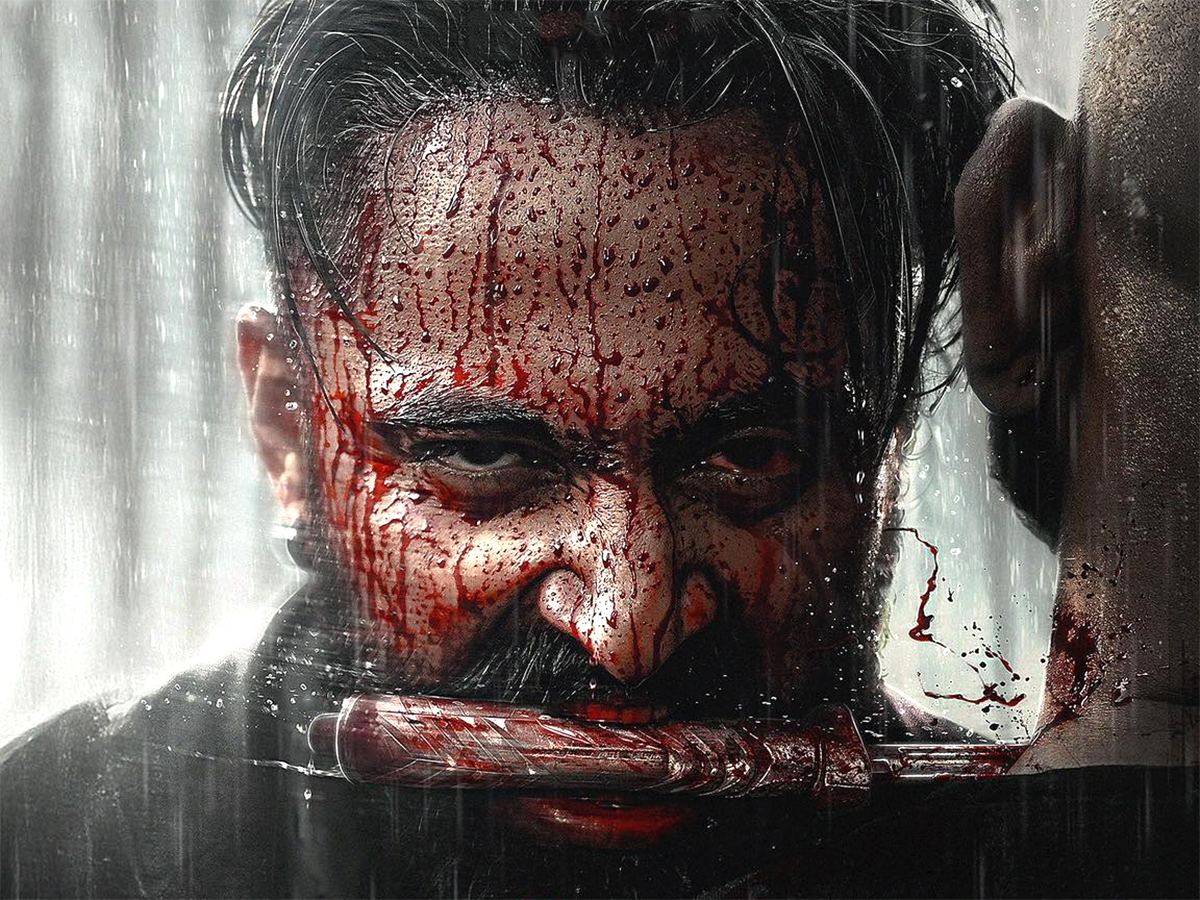
BOTTOM LINE
You Will Bathe in Blood
RATING
2.75/5
CENSOR
A, 2h 24m
What Is the Film About?
When Victor, the younger brother of a powerful mafia family is killed inhumanly by a rival family, his step-brother Marco (Unni Mukundan) promises to take revenge. The movie’s basic story is the way Marco goes about the vengeance and the setbacks he faces.
Performances
Unni Mukundan goes for a complete makeover with Marco. The character is designed as a beast-like personality who is raw and untamed and will go to any extent to protect his loved ones. The physical transformation and the attitude on display make the part believable. But, that is only half the job done as there is a lot of action to do.
Unni Mukundan does extremely well in the action blocks. The ferocity and energy needed for the part are adequately presented in the performance. Believability is the main thing here and the effort makes it convincing from the start to the end. But once he sets the tone and mood for his character, there is hardly any variation he brings.
Analysis
Haneef Adeni writes and directs Marco. It is an out-and-out action film made for genre lovers with a very thin storyline.
The Raid, followed by Hollywood flick John Wick, and series like The Punisher etc. have provided a feast for action movie lovers globally in the last decade and a half. Many have tried to replicate the formula across the industries and here we are now in the same space with Marco.
The movie’s opening segment sets the basic premise neatly without much drag. The principal characters among whom the narrative takes place are given some expository dialogues to establish the world and the editing sets up the tone perfectly.
The hero doesn’t arrive immediately and comes after a lot of buildup, the kind we see in KGF and the like. It raises the expectations and meets them comfortably. The hero’s introduction makes it clear that the movie would be a no-holds-barred action romp with lots of stomach-curdling gore, violence and blood spilling.
The film’s first half is about the build-up to the intro and then to the interval. Everything else happening in between works in tandem with taking the narrative towards those blocks.
The interval block raises the stakes further after the intro in terms of the action. It does remind one of the climax sequence of a recently released Telugu flick, though.
Again, the small twists and turns the proceedings take to reach the interval are on expected lines, and nothing is frankly surprising. These scenes additionally contain brief emotional moments between the brothers to justify all the violence that follows.
Post the bang of an interval, the expectations only increase as to what could come next to top it. However, we don’t immediately get to the ‘action’ and there is some drama. It is typical of the genre, which again feels like a set-up to the next big bang.
We get that bang, but in an unexpected fashion during the pre-climax. It justifies the promotional tagline of the film as ‘The Most Violent Flick’ of the season. It is also emotional and most importantly not for the weak-hearted. Some moments in it might be too much to take for a normal viewer.
The climax is on expected lines after that mayhem seen previously. But, it doesn’t just go through the motions, it delivers a satisfying experience after all things are done. It’s this full contentment experience after the whole ordeal is where Marco succeeds. The joy of making it seeps through amidst all the bloodshed.
Overall, Marco is a violent action thriller with slick execution. It delivers on what it promises without holding back on anything. It is a treat, for action movie lovers who don’t mind the gore. If you like the genre, go ahead.
Performances by Others Actors
We have many artists playing bits and pieces roles in the movie. To those who follow Malayalam cinema, a few faces are instantly recognisable like Siddique, Jagadish etc. They fit into any character given to them effortlessly. We see the same here as they play gangsters.
The rest of the actors are relatively unknown from an outsider’s perspective. However, it doesn’t matter as when it comes to the performances, they all do an adequate job. They generate the right emotion conveying ruthlessness or disgust. Abhimanyu Thilakan and Kabir Duhan Singh impress playing the antagonists. The latter gets a short, but powerful part sure to leave an impact.
Among the female characters, only Yukti Thareja and Durva Thaker have crucial parts. The screen time is small, but they add emotional appeal in their own way.
Music and Other Departments?
Ravi Basrur of KGF fame composes the music. The songs are serviceable to the genre, but the background score is excellent in his typical style. It leans more on the techno side and parts of it are repeated throughout, but it doesn’t get monotonous, though. Technically the movie is slick with excellent cinematography and editing. The action choreography is top-notch and a major highlight of the flick. The writing is okay.
Highlights?
Action Blocks
Unni Mukundan
Editing
Drawbacks?
Thin Storyline
Too Much Gore (Not For Everyone)
Mechanical Drama
Did I Enjoy It?
Yes
Will You Recommend It?
Yes, to those who love action movies in all its bloody glory
Marco Telugu Movie Review by M9
-
/cdn.vox-cdn.com/uploads/chorus_asset/file/25672934/Metaphor_Key_Art_Horizontal.png)
/cdn.vox-cdn.com/uploads/chorus_asset/file/25672934/Metaphor_Key_Art_Horizontal.png) Technology1 week ago
Technology1 week agoThere’s a reason Metaphor: ReFantanzio’s battle music sounds as cool as it does
-

 News1 week ago
News1 week agoFrance’s new premier selects Eric Lombard as finance minister
-

 Business1 week ago
Business1 week agoOn a quest for global domination, Chinese EV makers are upending Thailand's auto industry
-

 Health4 days ago
Health4 days agoNew Year life lessons from country star: 'Never forget where you came from'
-
/cdn.vox-cdn.com/uploads/chorus_asset/file/24982514/Quest_3_dock.jpg)
/cdn.vox-cdn.com/uploads/chorus_asset/file/24982514/Quest_3_dock.jpg) Technology4 days ago
Technology4 days agoMeta’s ‘software update issue’ has been breaking Quest headsets for weeks
-

 World1 week ago
World1 week agoPassenger plane crashes in Kazakhstan: Emergencies ministry
-

 Politics1 week ago
Politics1 week agoIt's official: Biden signs new law, designates bald eagle as 'national bird'
-

 Politics6 days ago
Politics6 days ago'Politics is bad for business.' Why Disney's Bob Iger is trying to avoid hot buttons
